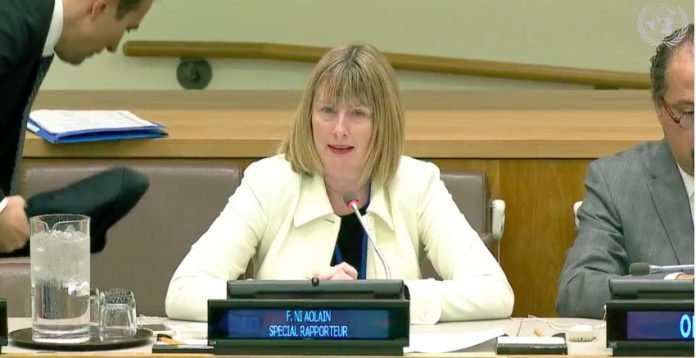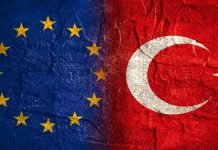Efforts to improve counterterrorism measures around the world are damaging human rights and the rule of law, a UN expert told the UN General Assembly, calling for greater accountability as countries build institutions to combat terrorism.
“I am deeply concerned by the increasing tendency to neglect fundamental rights and freedoms when addressing terrorism issues,” said Fionnuala Ní Aoláin, UN special rapporteur on the promotion and protection of human rights and fundamental freedoms while countering terrorism. “This has a severe impact on the integrity of the rule of law and governance.”
She presented a report to the General Assembly last week which suggests ways that human rights should be put at the heart of training and technical assistance aimed at combatting terrorism at the national, regional and global levels.
Turkey is an example of how the vague definition of terrorism damages human rights and the rule of law.
According to 2020 statistics published by the Justice Ministry, public prosecutors initiated 1.576 million investigations on allegations of terrorism between 2016 and 2020, and concluded 208,833 of these cases.
The Turkish government has been widely criticized for misusing the vague and imprecise charge of “membership in an armed terrorist organization” to target critics of its policies and to criminalize legitimate activities.
In August 2020 UN rapporteurs sent a joint letter to the Turkish government to underline that Ankara’s anti-terror law (No. 3713) does not comply with its international law obligations and that the country’s anti-terror legal framework should be urgently revised.
Similarly, the vice chair of the United Nations Working Group on Arbitrary Detention and three special rapporteurs sent a letter to the Turkish government in November 2020 saying that terrorism-related charges appear to be repeatedly misused to target the government’s critics.















